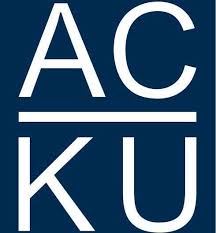Afghan women police : tomorrow’s force for inclusive security / Saliha Rasikh, Enayatullah Osmani and Wazhma Frogh (WPSO) ; Jorrit Kamminga and Akram Zaki (Oxfam).
Material type: TextLanguage: English Publication details: [Place of publication not identified] : Women& Peace Studies Organization, 2018.Description: 28 pages : color illustration, color map ; 28 cmSubject(s):
TextLanguage: English Publication details: [Place of publication not identified] : Women& Peace Studies Organization, 2018.Description: 28 pages : color illustration, color map ; 28 cmSubject(s): - Police – Afghanistan
- Female police – Afghanistan
- Women’s rights – Afghanistan
- Police training – Afghanistan
- Women's rights – Afghanistan – History
- Community development – Afghanistan
- Women – Political activity – Afghanistan
- Police – Afghanistan – History – 20th century
- Afghanistan – Politics and government – 2001-
- Pamphlet HV8242.6. A2.
| Item type | Current library | Call number | Copy number | Status | Date due | Barcode | Item holds | |
|---|---|---|---|---|---|---|---|---|
 Monograph
Monograph
|
Afghanistan Centre at Kabul University | Available | 3ACKU000537323 | |||||
 Monograph
Monograph
|
Afghanistan Centre at Kabul University | Pamphlet HV8242.6.A2.R375 2018 (Browse shelf(Opens below)) | 2 | Available | 3ACKU000537315 | |||
 Monograph
Monograph
|
Afghanistan Centre at Kabul University | 3 | Available | 3ACKU000547561 |
“July 2018”.
“Women& Peace Studies Organization ; OXFAM”—cover page.
Summary: “While today around 3,229 women serve in the Afghan police force, it is realistically still tomorrow’s force for inclusive security. The number of women is far behind the target of 5,000 places that are currently reserved for women in the staffing plan-a target that was already set for the end of 2014. Afghan women only represent around 2.5 percent of the police force and face an uphill battle against institutional and societal barriers. The police force and the Ministry of Interior still have neither an inclusive institutional culture nor a critical mass of women that can help normalize their inclusion and maximize…”—(page 2).
English
